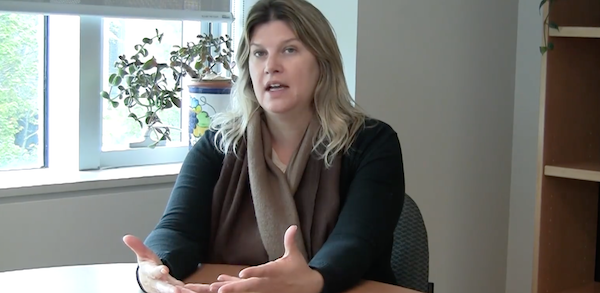
Q and A with SPA Director Lori Turnbull
Management Dean Kim Brooks interviews Lori Turnbull about today’s relevant research, challenges for new graduates and how alumni can stay engaged
The Faculty of Management has had the good fortune of recruiting outstanding directors to lead each of our four Schools. Many of you will have met or heard from Lori Turnbull, Director of the School of Public Administration (SPA). We’re incredibly lucky to have attracted Lori to lead SPA through the next stage in its evolution. She has incredible positive energy and a brain that seems to thrive on any discussion around public policy and public admin you throw at it.
When we first planned this, I was hoping I could interview Lori in person over coffee. How times have changed! Instead, my interview with Lori was as virtual as your reading of it will be.
Kim: What makes being the director of SPA exciting?
Lori: It is exciting to work with students, faculty, staff, and partners to tackle the major policy challenges facing local, provincial, and national jurisdictions. It is especially fun to see how different skill sets and perspectives work together to create innovative solutions to these challenges. The issues that public servants confront during the span of their careers know no bounds; literally any and every public challenge is for the public service to take a leadership role in solving. It is a thrill to engage with students, scholars, and practitioners in public administration to learn from one another and to collaborate.
Kim: What do you most hope for the graduates of the School’s programs?
Lori: I hope that they have confidence in their skills, abilities, and training as compassionate problem solvers. I hope that they feel strongly about the applicability of their skills and education to a variety of contexts, including but not limited to the public sector.
Kim: What do you think is the biggest challenge for graduates?
Lori: One of the biggest challenges is the obscurity around the public service. It is a mysterious environment. Many people who have not worked inside the public service find it difficult to understand and relate to the hierarchical structure of the Westminster bureaucracy, the notion of speaking truth to power, and the anonymity of the public servant. The internship experience tends to be transformative for students. It gives them an opportunity to realize the relevance of course material.
Kim: What are you researching and why does it matter?
Lori: I am working on a project on election communications and the potential for false statements to damage the integrity of elections and the legitimacy of electoral outcomes. This is an important project because we rely on democratic elections as the primary mechanism for translating the will of the public into a representative legislative branch, who make decisions on our behalf to advance the public interest. To the extent that voting behaviour could be affected by false statements, we risk undermining the value of elections. On social media, messages travel quickly and cheaply without the kinds of verification processes that govern the mainstream media. In this context, citizens need to make greater efforts toward intellectual self-defence in order to safeguard democracy and its processes and outcomes.
Kim: How can alumni stay engaged?
Lori: SPA is fortunate to have supportive, dedicated alumni who stay connected. Alumni can attend the Atlantic Canadian Public Administration (ACPA) conference; take part in events hosted by the SPA and the MacEachen Institute (both digital and face-to-face); mentor a student who is looking for guidance before entering the workforce; hire a student as a summer intern; follow us on Twitter, Facebook and LinkedIn so that you know what we’re up to!